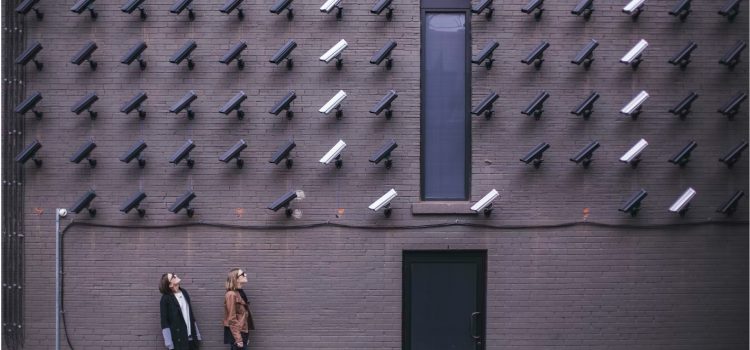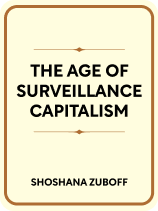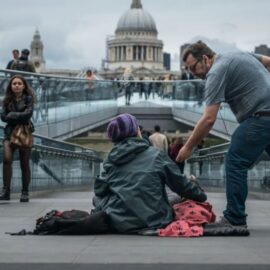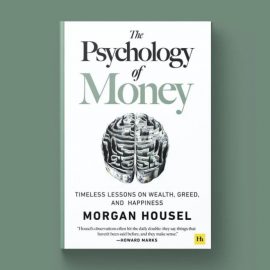

This article is an excerpt from the Shortform book guide to "The Age of Surveillance Capitalism" by Shoshana Zuboff. Shortform has the world's best summaries and analyses of books you should be reading.
Like this article? Sign up for a free trial here.
What is a surveillance economy? Why does it threaten your right to privacy? What are the other dangers?
In The Age of Surveillance Capitalism, Harvard professor Shoshana Zuboff explores the concept and dangerous consequences of “surveillance capitalism.” By learning about these dangers, you’ll be better equipped to protect your privacy against a surveillance economy.
Keep reading to learn about the surveillance economy and its consequences, according to Zuboff.
What Is a Surveillance Economy?
Are you aware that you’re being watched by big tech companies? According to author Shoshana Zuboff, “surveillance capitalism” is a term, which she created, that describes the invasive and controlling data collection practices that tech companies like Google, Microsoft, and Facebook have adopted to maximize their profits. To protect your privacy and fight to protect the privacy of us all, it’s important to learn about the dangerous consequences of the growing surveillance economy.
The surveillance economy has been able to thrive despite growing opposition, leading to concerns that it could destroy our freedom and democracy.
Let’s explore some of the dangerous consequences we face from a surveillance economy, according to Zuboff.
Consequences of a Surveillance Economy
Zuboff stresses that the surveillance economy has already caused a number of grave consequences for our society, and particularly for our democracy. Let’s discuss each consequence in more detail.
Consequence #1: It Threatens Our Right to Privacy
Zuboff explains that companies often collect information without the knowledge or meaningful consent of their consumers. Additionally, they invade personal spaces—both physical and psychological—to do so.
For example, she says that even when we’re inside our homes, devices like TVs, thermostats, and even mattresses are monitoring and delivering information about what we say and do to company computers. In addition, companies can analyze metadata—like how often you change your profile picture—to determine extremely specific information that you never intentionally disclosed, such as whether or not you have depression.
| How Far Does Privacy Invasion Go? Here, Zuboff warns of a surveillance economy and the tech companies that are violating our privacy by invading our personal spaces and analyzing our metadata for extremely specific personal information. Arguably an even more severe threat to privacy is that these companies share this private information with law enforcement agencies without people’s knowledge or consent and without the required warrants. For example, according to one report, law enforcement demanded seven days of location information from a man’s cell phone provider in connection with a criminal investigation. Fortunately, however, when the case was taken to the US Supreme Court in 2018, the Court ruled that his location information was protected by his Fourth Amendment rights, meaning law enforcement needed a warrant to access it. That said, whether this ruling will serve as a precedent for future cases involving privacy and technology remains to be seen. |
Consequence #2: It Removes Individual Autonomy
Zuboff argues that because companies aim to control people’s behavior—often outside of our awareness—they have removed our right to individual autonomy. Not only do companies engage in practices like eliminating the option to opt out of privacy invasion and fostering the public’s dependency on their services (as we’ve discussed earlier), but they also interfere with our emotions and choices without their knowledge or consent.
(Shortform note: While Zuboff’s argument against a surveillance economy presupposes the existence of free will, some would say that there’s no such thing. They insist that because we’re always influenced by biological and environmental factors outside of our control—like the health conditions we’re born with or the family we’re raised by—we don’t have the autonomy over our lives we think we do. Following this logic, no one can take away our free will, because it didn’t exist to begin with.)
For example, Zuboff says that in 2010, Facebook ran an experiment to test whether it could mobilize people to vote. It found that it could influence whether a person went to the polls by showing them photos of friends and family who had already voted. While it may seem minor, this subtle manipulation essentially removed their autonomous decision about whether to vote.
(Shortform note: In a surveillance economy, social media has been used not only to influence people to vote but also to influence people who to vote for. According to a report published by the US Senate in 2018, Russia tried to influence American voters through all major social media platforms prior to the 2016 election. This wide-scale attempted manipulation has concerning implications for both national security and democracy, which hinges on individuals’ right to have a voice.)
Consequence #3: It Disregards Social Norms
According to Zuboff, a surveillance economy’s goal of total predictability has influenced companies to disregard social norms in favor of machine automation. Because these social norms involve flexibility and risk—which are inherent in human-to-human interactions—they can’t facilitate the high level of behavioral control that companies seek.
For example, Zuboff says auto loan lenders install devices that deactivate the car’s engine if borrowers are late on payments. While this automatic process may help lenders avoid risk, it’s also void of empathy for human struggles—like whether the person was short on money due to illness—that is essential to the social contracts of our current society.
| Starter Interrupt Devices Disengage Morality These starter interrupt devices and similar technologies of a surveillance economy arguably encourage action that lacks empathy and regard for social norms because they depersonalize the action. Research shows that people disengage their sense of morality when they lose the sense that the people they are mistreating are unique individuals. Someone who presses a button to shut off someone’s engine may not do the same thing if they were face-to-face with the car’s owner. In addition to being void of empathy for human struggles—as Zuboff explains here—starter interrupt devices also unfairly target the poor. Dealers and lenders see them as a way to protect their assets from “risky” borrowers who have poor credit scores and other financial challenges, so they most often distribute them to poor people who have no choice but to apply for subprime auto loans. What’s more, not only are the devices immoral for their lack of empathy and unfair targeting, but they can also be legitimately dangerous. For example, some borrowers have claimed that their cars have been shut off while idling or driving on the freeway. |

———End of Preview———
Like what you just read? Read the rest of the world's best book summary and analysis of Shoshana Zuboff's "The Age of Surveillance Capitalism" at Shortform.
Here's what you'll find in our full The Age of Surveillance Capitalism summary:
- The methods big tech companies are using to watch you
- How surveillance capitalism can thrive despite opposition
- How to prevent it from destroying our freedom and democracy






